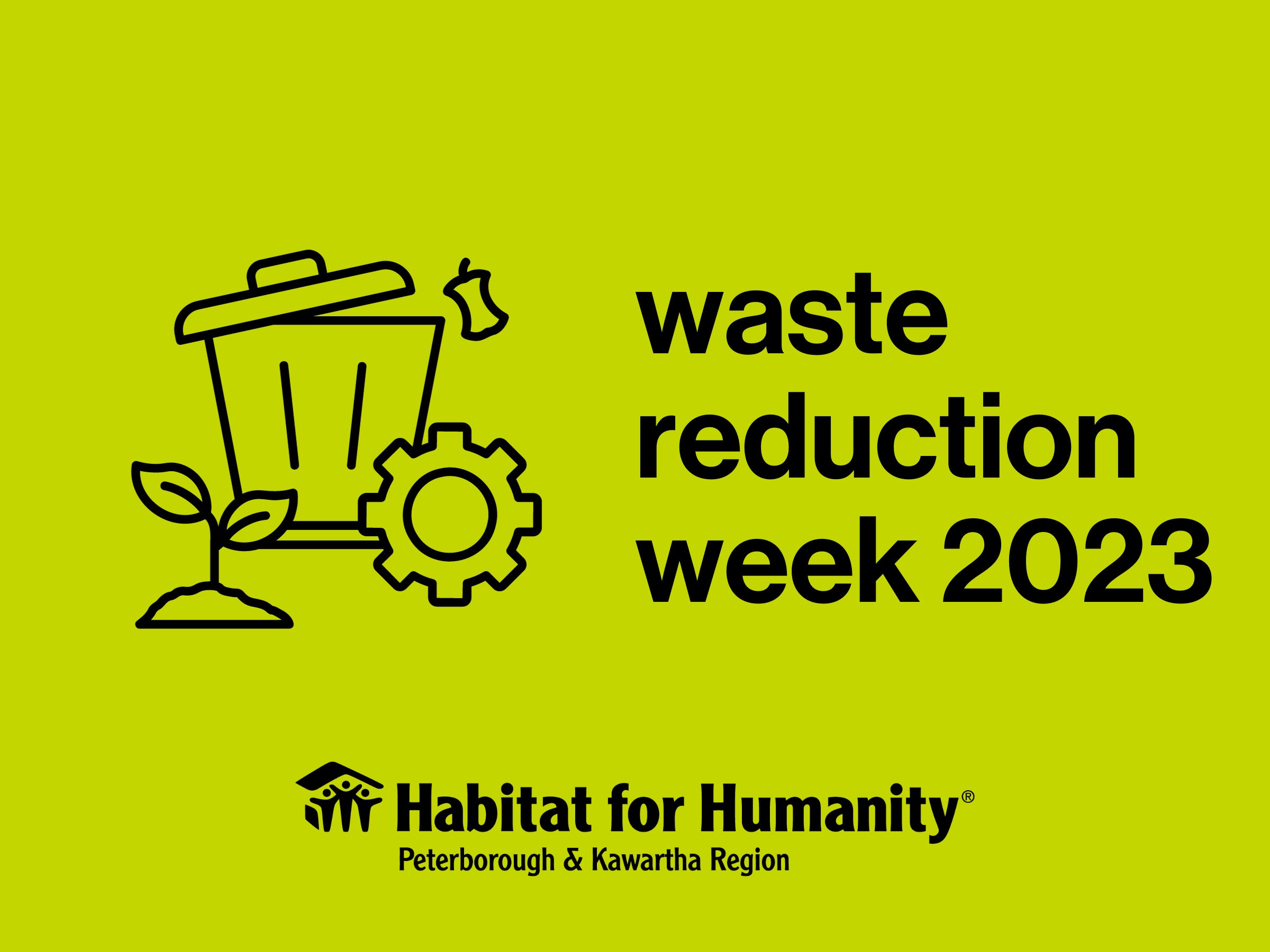Waste Reduction Tips: Waste Reduction Week 2023

It’s Waste Reduction Week on the third week of October, and at Habitat for Humanity Peterborough & Kawartha Region, we’re committed to reducing unnecessary waste so that we can continue to save the environment that we all know and love. Reducing waste can be done in easy, small steps, with individual small habitual changes having a larger positive environmental impact when we all contribute to these small changes – together! Interested in getting involved but aren’t sure how to begin? Check out these Waste Reduction Tips below to get you started.
1. Shop Second-Hand Items at the Habitat ReStore
Thrifting at second-hand stores such as the Habitat ReStore instead of buying new, is a great way to reduce waste. Not only is it more affordable than buying brand new, but you get to revive items that would otherwise head to landfill. At the Habitat ReStore, you can find great deals on furniture, appliances, home decor, building materials and more. Every purchase at a Habitat ReStore also goes beyond waste reduction, as the funds from a Habitat ReStore also help local families into affordable homes.
2. Use a Reusable Water Bottle
Staying hydrated is key for our health, but we can also make sure our healthy habits result in a green footprint! Switching to a reusable water bottle is affordable and a minimal-effort way of reducing the plastic waste we produce. Instead of purchasing bottled water, you can fill up your reusable water bottle from the tap in your home, and many public places also now have water bottle filling stations to keep you hydrated when you are out and about.
3. Reduce Energy Consumption
Reducing our energy consumption in small ways can not only reduce the cost of our energy bills but also help reduce waste. Often just being more intentional with our appliances is how we make the first step. Some ways you can reduce your energy consumption are by switching appliances off standby, turning off lights in your home when you aren’t using them, spending less time in the shower and being savvy when it comes to using larger appliances like your washing machine, dishwasher and tumble dryer. This could look like trying to only run a cycle in the washing machine once a week, making sure the dishwasher only runs when it’s full or trying to dry clothes on racks inside where possible or outside in warmer weather instead of using the tumble dryer.
4. Use Your Own Bag for Shopping
Many stores are already turning away from providing plastic bags, and offer reusable bags for purchase! When it comes to reducing waste, using your own reusable shopping bag is a simple yet impactful step. Plastic bags contribute significantly to environmental pollution, and by bringing your own bag, you can cut down on the number of plastic bags that end up in landfills.
5. Donate Items You No Longer Need to the ReStore
Decluttering your home not only clears physical space but also offers a great opportunity to reduce waste. Instead of throwing away items you no longer need, consider donating them to a Habitat ReStore. Your used furniture and household items can find a new lease on life with someone else.! This not only reduces waste but also supports a circular economy where resources are reused and repurposed, contributing to a more sustainable future. Donating to a Habitat ReStore also goes beyond waste reduction, as every purchase helps local families into affordable homes.
6. Buy Eco-Friendly Products
A crucial aspect of waste reduction is making conscious choices when shopping for everyday items. Look for products that are labelled as eco-friendly or sustainable. These products are often designed to have a lower environmental impact, whether through reduced packaging, recyclable materials, or energy-efficient manufacturing processes. By supporting eco-friendly brands and choosing products that prioritize sustainability, you play an active role in reducing the overall waste generated by consumer goods. Your purchasing decisions can be a powerful driver for positive change.
What are ways you planning on reducing waste this week – and onwards? Join the conversation and let us know over on Facebook or Instagram!

